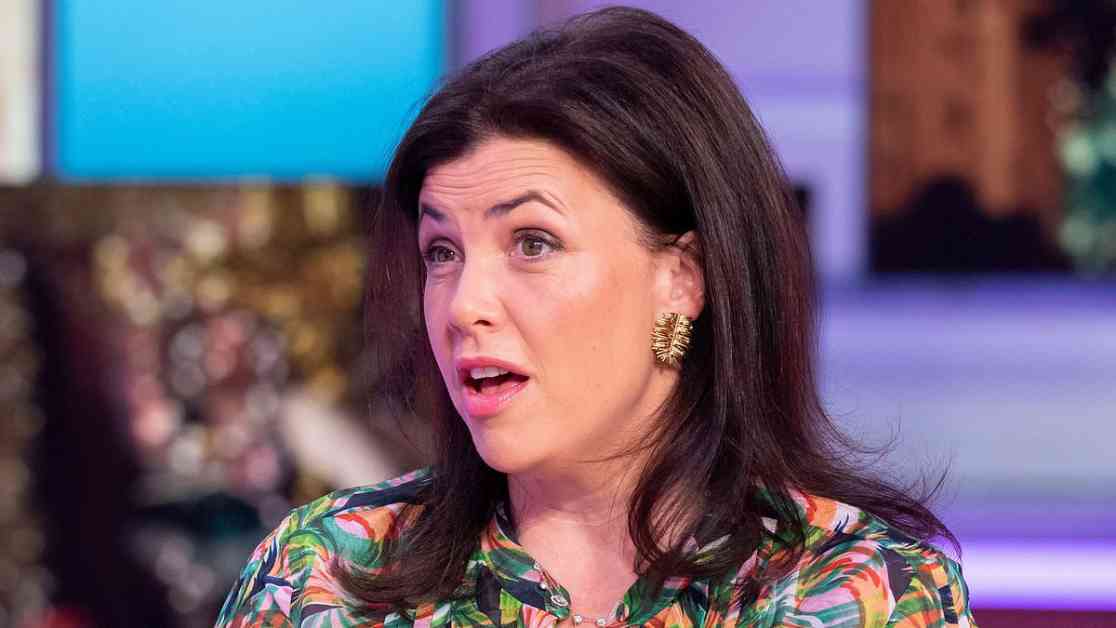Kirstie Allsopp, the well-known TV presenter, found herself at the center of controversy recently when she was questioned by social services regarding her decision to allow her 15-year-old son, Oscar, to go on an Interrail trip across Europe. The incident, which Allsopp described as “Orwellian” and “absolutely outrageous,” has sparked a debate about the role of social services in parenting decisions and the extent to which parents should be monitored for allowing their children to explore the world.
Outrage Over Social Services Inquiry
The story began when Kirstie Allsopp proudly shared on social media about her son Oscar’s successful Interrail trip with a friend. However, her joy quickly turned to anger when she received a text message from a social worker from Kensington and Chelsea children’s services. The message stated that they wanted to have a conversation with her regarding a referral they had received in relation to her son.
Allsopp was taken aback by the inquiry, feeling sick and upset at the intrusion into her parenting decisions. She expressed her frustration at the social worker’s lack of understanding that the referral was based on a “malicious” complaint rather than genuine concerns for Oscar’s well-being. The fact that a file had been opened on her son without her consent or knowledge added to her distress, leading her to question the motives behind the investigation.
Parental Rights vs. State Intervention
The incident involving Kirstie Allsopp and her son’s Interrail trip has raised important questions about the balance between parental rights and state intervention in child welfare. While safeguarding children is undoubtedly crucial, there is a fine line between ensuring their safety and unnecessarily intruding into families’ private lives.
Tory MPs Sir Alec Shelbrooke and Dame Karen Bradley criticized the social services’ actions, labeling it as the “nanny state gone mad.” They argued that parents should have the freedom to make decisions about their children’s upbringing without unwarranted interference from authorities. Allsopp’s defense of her son’s trip as a valuable learning experience highlights the need for trust and respect in parent-child relationships.
The Impact on Families and Children
The implications of social services’ investigation into Kirstie Allsopp’s parenting choices extend beyond her family to the wider community. The fear of being unjustly targeted by child protection services can have a chilling effect on parents’ willingness to allow their children to explore the world and gain independence.
Oscar Hercules, Allsopp’s son, expressed his dismay at the accusation of neglect, emphasizing the hurtful nature of such unfounded claims. The psychological impact of being subjected to scrutiny and suspicion can be detrimental to a child’s well-being, causing feelings of shame, guilt, and confusion.
Lessons Learned and Moving Forward
The ordeal experienced by Kirstie Allsopp and her family serves as a cautionary tale about the potential consequences of overzealous intervention by social services. It underscores the need for a nuanced approach to child protection that respects parents’ autonomy while prioritizing children’s safety and welfare.
In the aftermath of the incident, Allsopp called for a reevaluation of the criteria used by social services to initiate investigations into families. She emphasized the importance of distinguishing between genuine concerns and malicious complaints to prevent similar misunderstandings in the future.
As the debate continues about the role of social services in monitoring parental decisions, it is essential to strike a balance between safeguarding children and respecting families’ privacy and autonomy. Allsopp’s experience sheds light on the complexities of modern parenting and the challenges faced by parents in navigating a system that often errs on the side of caution.
In conclusion, Kirstie Allsopp’s anger over her son’s Interrail trip investigation has sparked a wider conversation about the boundaries of state intervention in parenting and the need for a more thoughtful and respectful approach to child welfare. As families navigate the complexities of raising children in an ever-changing world, it is crucial for authorities to uphold the rights of parents while ensuring the safety and well-being of all children.












